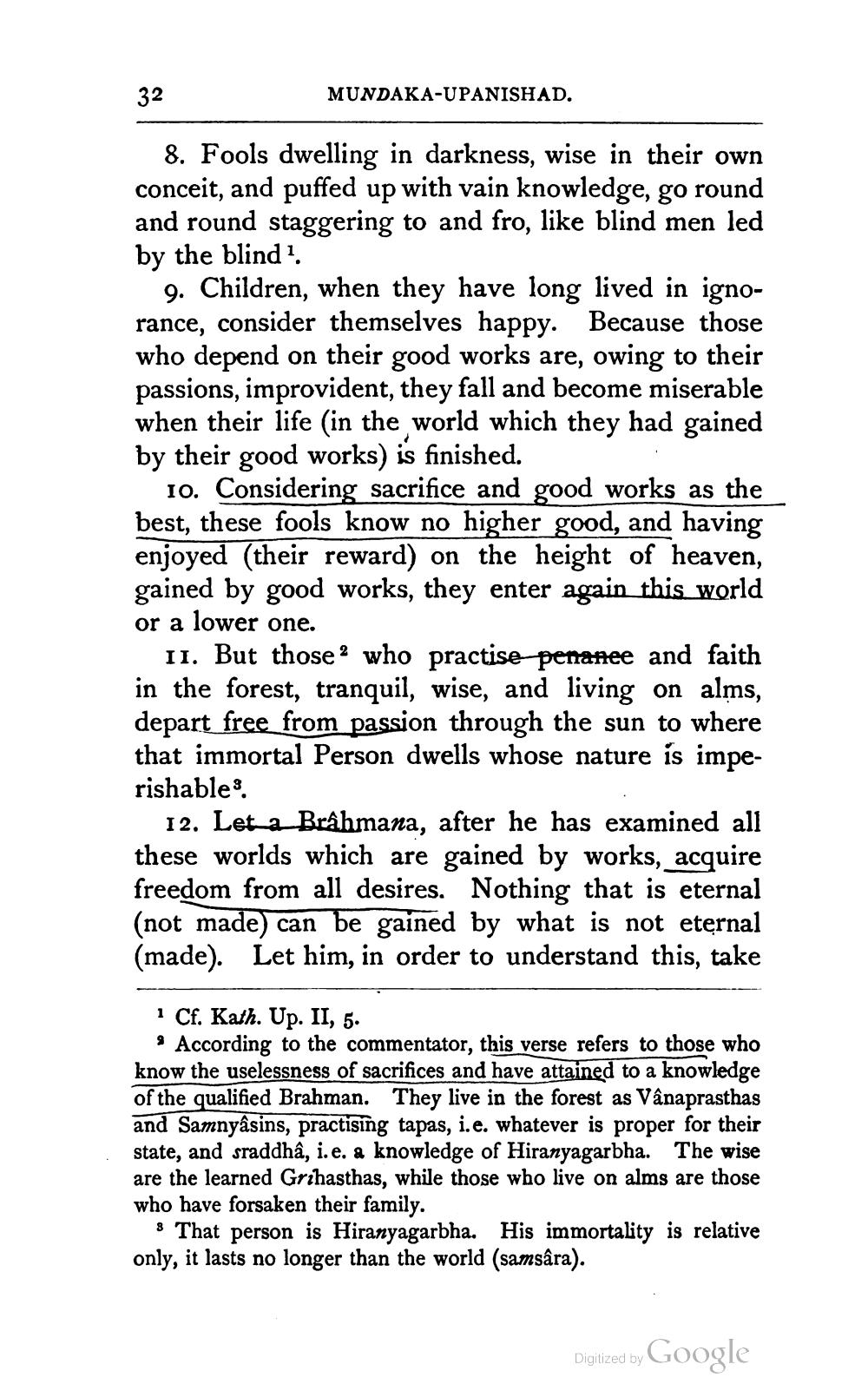________________
32
MUNDAKA-UPANISHAD.
8. Fools dwelling in darkness, wise in their own conceit, and puffed up with vain knowledge, go round and round staggering to and fro, like blind men led by the blind 1.
9. Children, when they have long lived in ignorance, consider themselves happy. Because those who depend on their good works are, owing to their passions, improvident, they fall and become miserable when their life (in the world which they had gained by their good works) is finished.
10. Considering sacrifice and good works as the best, these fools know no higher good, and having enjoyed their reward) on the height of heaven, gained by good works, they enter again this world or a lower one.
11. But those who practise penanee and faith in the forest, tranquil, wise, and living on alms, depart free from passion through the sun to where that immortal Person dwells whose nature is imperishable
12. Let a Brahmana, after he has examined all these worlds which are gained by works, acquire freedom from all desires. Nothing that is eternal (not made) can be gained by what is not eternal (made). Let him, in order to understand this, take
1 Cf. Kath. Up. II, 5.
. According to the commentator, this verse refers to those who know the uselessness of sacrifices and have attained to a knowledge of the qualified Brahman. They live in the forest as Vânaprasthas and Samnyâsins, practising tapas, i.e. whatever is proper for their state, and sraddhâ, i.e. a knowledge of Hiranyagarbha. The wise are the learned Grihasthas, while those who live on alms are those who have forsaken their family.
3 That person is Hiranyagarbha. His immortality is relative only, it lasts no longer than the world (samsára).
Diglized by Google




